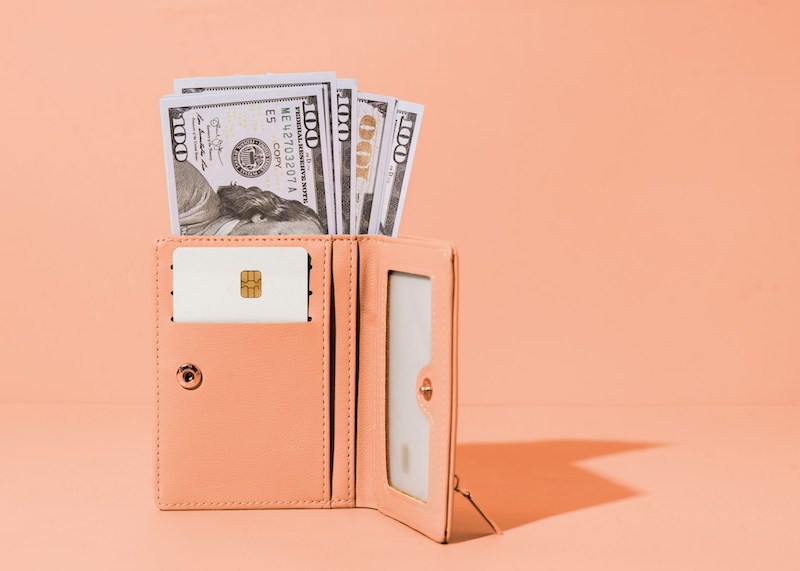Branded Content by Cosmic Press
Many Americans will face financial hardship at some point in their lives. Recent data from the Federal Reserve suggests that over a quarter of Americans are struggling financially and may not be able to keep up with their bills. In some cases, this financial hardship is a result of bad spending habits, lack of financial literacy, and poor money management.
While dealing with financial issues can be tough, you can pick yourself back up and regain control over your life! The most important thing to do when trying to get your finances back on track is to create a foundation. Check out these 7 tips for practicing practical spending!
1. Set a Monthly Budget
As mentioned above, the very first step towards practicing practical spending habits is to create a solid foundation for your money. This means that you should have a monthly budget in place so that you have a plan for your money each month. Not only do you need to create a budget, but you need to learn how to stick to it!
Take a look at your anticipated monthly income and fixed / variable expenses. Are you being stretched too thin? You can review this information by creating a simple spreadsheet online or through a budgeting app on your phone. If you prefer to create your budget by hand, by all means, go for it! Whichever option gets you to stick with your budget is the option you should choose to move forward with. Once you have an itemized list of your income and expenses, you can create a schedule for your bills and separate them into categories. This is one of the easiest ways to monitor your spending habits and stick to your budget!
2. Fix Your Relationship with Money
Many people have a poor relationship with money because they have bad spending habits. When you have a bad day, do you try to fix it by shopping? For some people, impulsive purchases can easily create a dopamine response, so it’s a learned behavior due to stress or sadness.
A little “sweet treat” after a bad day may not seem like an issue, but the cost can spiral over time if your spending habits are left unchecked. You need to learn how to fix your relationship with money and hold yourself accountable to your budget! Don’t just put things on a credit card when you have a bad day. Instead, allow yourself one treat per week / month and make sure that it stays within your budget so you aren’t rewarding yourself for bad behavior!
3. Increase Your Income
If you just can’t seem to make ends meet and you are sticking to your budget, it may be time to explore other options for getting your finances back on track. A second source of income can be one of your options if you have some extra free time throughout the month! You can try to wait tables on the weekends or pick up an extra shift at your job to get some extra cash to get your finances back in order.
If you do take on additional shifts on the weekend or apply for another job, try to prioritize your mental health and your current job. Don’t burn yourself out! It will not be sustainable in the long run. If you want to test this situation out, just pick up a few extra hours per week to start out with and see what you are able to handle.
4. Cut Back Where You Can in Your Budget
If you haven’t gone through your budget already, it’s time to refresh it and cut back on any categories that you can in order to save as much as possible! For example, if you eat out more than once a week because you don’t have time for groceries, you can try cutting back on DoorDash and invest in a meal planning service like Factor or Hello Fresh. When you have ready-to-make meals at home, you may be less likely to eat out and waste money!
Or, if you spend too much money per month on personal care items, you may want to see if there are any drugstore dupes for your favorite moisturizers or makeup products. You should aim to comb through your budget every few months to make sure you are staying on track. If your financial situation changes at all, it’s important to update your budget ASAP! For example, if you get a second job, make sure to add that income to your budgeting spreadsheet and adjust your budget accordingly.
5. Learn How to Shop Smart
Another important part of practicing practical spending is to shop smarter as a consumer. Shopping for generic groceries is not always ideal for some items, but in most cases, they can be a great alternative to many different kinds of name-brand products! The easiest way to “shop generic” is during your weekly or bi-weekly grocery trips. However, buying generic groceries isn’t the only way to shop smart. You can buy generic or “dupe” versions of electronics, makeup, perfume / cologne, and other products! Buying a non-brand name version of the item you love can be a great way to save money without too much compromise. In some cases, the generic version may perform better than the original!
6. Get Out of Debt
Being in debt can create a significant amount of stress, especially if you are stuck in a cycle of paying off high-interest credit card debt. Getting out of debt should be your priority if you want to be more practical with your money. A percentage of your income should go towards paying off your debt and getting your finances back in order! Try to pay off as much debt as you can per month without disrupting any of your necessary expenses, like rent or groceries.
If you want to consolidate your debt obligations into one single monthly payment, you may want to consider a consolidation loan, such as online title loans or a personal loan. With a debt consolidation loan, the repayment process may be a little bit more efficient and manageable because your focus is on one large payment, not several smaller ones.
7. Create Better Goals
The last practical spending tip is about your future and not just your present spending habits. After you’ve created a solid foundation and improved your relationship with money, you should try to create positive financial goals for your future. What do you want your finances to look like in ten years? Do you have a retirement fund already set up? Are you saving for a house or a new car? It’s important to create these goals and expectations for yourself now, so that you have something to look forward to!
Reminder- Don’t Be Discouraged
If this is your first time creating a budget, remember that slip ups can happen! It’s okay if the first few months are a bit rocky. Eventually, you will find your footing and get yourself back on track. If you truly cannot learn how to practice practical spending habits and you need help from an outside source, consider seeking advice from a financial advisor. There’s no shame in asking for help if you don’t have the means to get your finances together! You may be able to explore debt management plans or other means to reach your financial goals.
Branded content furnished by our promotional partners. The Daily Sundial editorial staff is not involved in its production. Content does not reflect the views or opinions of the editorial staff.








